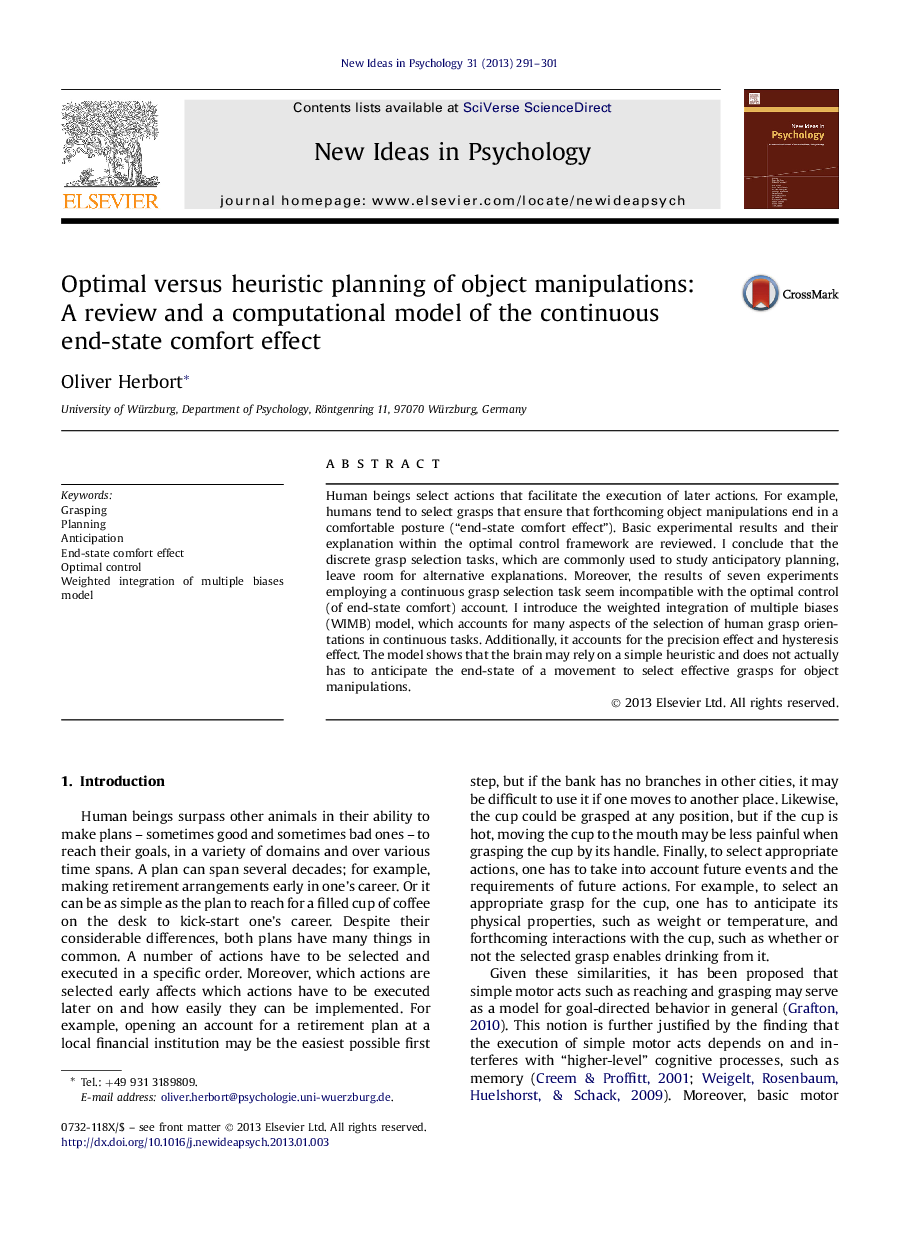| کد مقاله | کد نشریه | سال انتشار | مقاله انگلیسی | نسخه تمام متن |
|---|---|---|---|---|
| 331467 | 544327 | 2013 | 11 صفحه PDF | دانلود رایگان |

Human beings select actions that facilitate the execution of later actions. For example, humans tend to select grasps that ensure that forthcoming object manipulations end in a comfortable posture (“end-state comfort effect”). Basic experimental results and their explanation within the optimal control framework are reviewed. I conclude that the discrete grasp selection tasks, which are commonly used to study anticipatory planning, leave room for alternative explanations. Moreover, the results of seven experiments employing a continuous grasp selection task seem incompatible with the optimal control (of end-state comfort) account. I introduce the weighted integration of multiple biases (WIMB) model, which accounts for many aspects of the selection of human grasp orientations in continuous tasks. Additionally, it accounts for the precision effect and hysteresis effect. The model shows that the brain may rely on a simple heuristic and does not actually has to anticipate the end-state of a movement to select effective grasps for object manipulations.
► Humans adjust the grasp orientation when grasping an object for manipulation.
► This enables manipulations that end in comfortable postures (end-state comfort).
► Optimal control models only partially explain such anticipatory grasp adjustments.
► However, a heuristic model (WIMB) accounts for this and related observations.
► Anticipatory actions therefore do not necessarily require the anticipations of end-states.
Journal: New Ideas in Psychology - Volume 31, Issue 3, December 2013, Pages 291–301